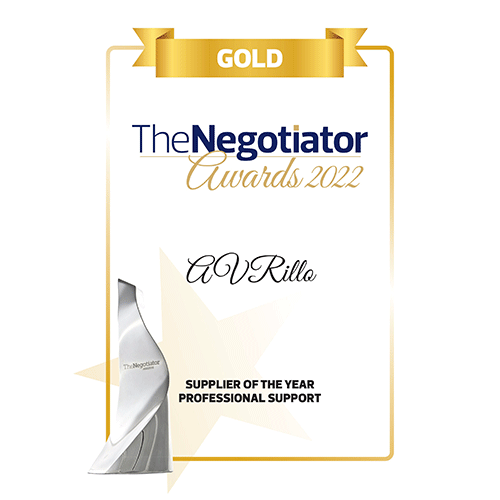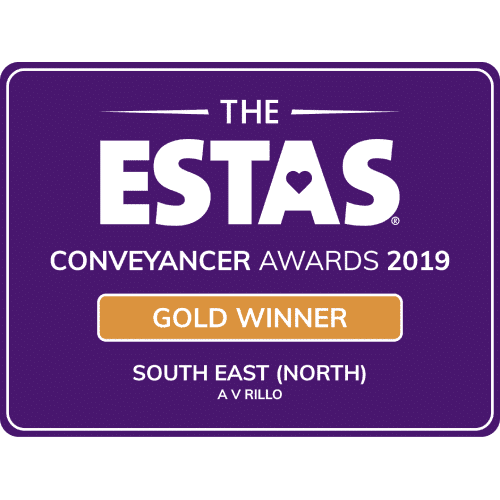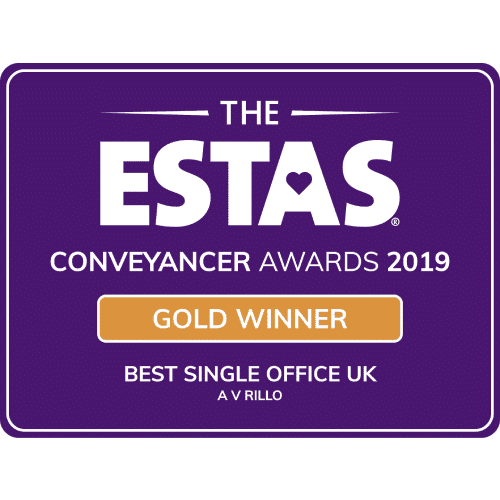

and start saving money now
and start saving money now
Get a FREE Conveyancing Quote
Award-Winning Conveyancing Lawyer In Beckenham - AVRillo Conveyancers
It is therefore highly suggested to seek the assistance of an expert conveyancer in the UK who has experience in dealing with all these matters. The conveyancing lawyer team at AVRillo has deep knowledge of the local market earned after years of practice. Hence, we can carefully guide you through every stage of your case while moving to Beckenham, throughout the process, and make it faster and hassle-free.
Residential Conveyancing Services in Beckenham - We Make Your Move Cheaper, Safer And, More Secure!
 Free consultation and money-back guaranteeWhen most of our competitors charge even for the initial consultation, we kept it free for you. You can consult with our finest solicitors absolutely at no cost. We aim at providing the best conveyancing service in Beckenham or nearby areas and therefore we strictly adhere to the quality assurance standards. We make sure that you are fully satisfied with our services before you continue.
Free consultation and money-back guaranteeWhen most of our competitors charge even for the initial consultation, we kept it free for you. You can consult with our finest solicitors absolutely at no cost. We aim at providing the best conveyancing service in Beckenham or nearby areas and therefore we strictly adhere to the quality assurance standards. We make sure that you are fully satisfied with our services before you continue.
You can try our services for 30 days and decide if you want to continue or want a refund. You will get your entire money back if you are not satisfied. All the services you received within the trial period will not be chargeable. Best advisers on the UK’s real-estate AVRillo conveyancers can provide the best advice on any conveyancing matters in Beckenham. After working for years in the UK, our solicitors have gained valuable experience on how to make the transaction process faster.
Best advisers on the UK’s real-estate AVRillo conveyancers can provide the best advice on any conveyancing matters in Beckenham. After working for years in the UK, our solicitors have gained valuable experience on how to make the transaction process faster.
We have thorough knowledge about the local property market in detail, which helps you get a dispute-free property at the right price. Also, we offer convenient, efficient, and friendly conveyancing services to you in Beckenham. No up-front paymentAVRillo ensures that you are comfortable in the transaction first before making any payment to us. Therefore, we do not charge you any advance payment prior to picking up your transaction. As a result, you don’t have to pay anything in advance. When you approach us, we don’t keep you waiting, instead start working immediately.
No up-front paymentAVRillo ensures that you are comfortable in the transaction first before making any payment to us. Therefore, we do not charge you any advance payment prior to picking up your transaction. As a result, you don’t have to pay anything in advance. When you approach us, we don’t keep you waiting, instead start working immediately. Less turnaround for processing and minimum hassleOur panel of conveyancers aims to make your process as straightforward as possible for you in Beckenham. We focus on minimizing legal jargon to the least so that you can accomplish your transaction with minimal hassles and in the least time. We finish a normal transaction within two months, which is faster than the average time taken to purchase a property for the first time.
Less turnaround for processing and minimum hassleOur panel of conveyancers aims to make your process as straightforward as possible for you in Beckenham. We focus on minimizing legal jargon to the least so that you can accomplish your transaction with minimal hassles and in the least time. We finish a normal transaction within two months, which is faster than the average time taken to purchase a property for the first time.
We try to involve you in the process as little as possible so that you stay away from any risky or cumbersome task. For example, reviewing the contract needs one to be highly cautious about it as not everyone is honest. If by any means a single point is missed out, you may be defrauded by the other party. Hence, we suggest you get the best conveyancing services as we have a higher success rate than most of our competitors. Sensibly affordable and trustworthyWe make your move to Beckenham highly affordable. Our pricing structure for conveyancing services is extremely competitive in the market. We make sure that all your money is worth the service we provide.
Sensibly affordable and trustworthyWe make your move to Beckenham highly affordable. Our pricing structure for conveyancing services is extremely competitive in the market. We make sure that all your money is worth the service we provide.
We have a brilliant track record of successful transactions throughout the year. So far, we have worked for thousands of satisfied clients who dropped their testimonials here acknowledging our work. We were awarded many times by many institutions that prove our excellence in handling cases of buying and selling properties in Beckenham. Reliable security and confidentiality of data Documents of ownership are highly confidential and keeping them safe is not easy. We understand the sensitivity of the matter and therefore we have the latest and super secure system that ensures full protection from malware. Additionally, there is an information technology team to look after any security breach. All communication with the client through emails is encrypted and direct communication is kept private.
Reliable security and confidentiality of data Documents of ownership are highly confidential and keeping them safe is not easy. We understand the sensitivity of the matter and therefore we have the latest and super secure system that ensures full protection from malware. Additionally, there is an information technology team to look after any security breach. All communication with the client through emails is encrypted and direct communication is kept private.
Recent Reviews
Conveyancing in Beckenham: FAQs
What Proof of ID would I require?
You would need proof of identity and address.
For identity proof, you would need anyone from the following:
- A valid passport
- A valid driving license
For address proof, you would need anyone from the following from the past three months:
- A utility bills
- A council tax bills
- A bank statements
In case you are not a resident of the UK, we will ask for two forms of proof of address and one proof of identity, certified by a Notary Public bearing the notarised seal.
After receiving your identification, our solicitor will obtain electronic verification using the ID documents provided. If we couldn’t obtain a satisfactory result, we will contact you for other proof.
Why should I get a legal service provider regulated by the CLC?
The CLC (Commercial Law Chamber) lawyer is subject to robust regulation and is well-versed with the UK laws. These lawyers ensure your best interests are served and they protect you if something goes wrong.
The Code of Conduct of CLC has guidelines based on six principles on how Licensed Conveyancers should work and behave. These principles provide you the rights when you hire a Licensed Conveyancer. Under these rights, your conveyancer is supposed to treat you fairly, and talk clearly about the costs of the legal work. You also get the right to complain if something goes wrong.
I don’t have my deeds. How can I obtain them?
These days, most titles are registered electronically at the Land Registry. You can obtain a copy of the register from the Land Registry office directly. The Digital registry has replaced title deeds.
It will have all details, including the details of the owner of the property or land and any other relevant information along with any charges against the property. A copy of the register is the only document you would need to sell your property. Your lawyer can obtain this document from the Land registry which he would need to prepare the contract.
If in any case, your property is not registered electronically, and you are unable to locate your deeds, you will need to instruct your lawyer to assist in assembling documents to replace the deeds.
What happens first in conveyancing?
First of all, your conveyancer will cross-check the identity proofs you provided. After verification, the conveyancer will do searches, draft the contract, and examine supporting documents, and then raise inquiries with the seller’s solicitor. You would need to go through the forms the seller has completed and inform the solicitor if you have any questions or doubts.
What do I need to know about the tenure of the new home?
You need to double-check the tenure of your new home, whether it is leasehold or freehold property. If it is leasehold, instruct your solicitor to check for the length of the lease. Leases less than 80 years may not be a good deal, because it can be costly to extend and you need to have owned the property for two years before you are eligible to do so. Leasehold properties below 60 years must be avoided.
Are all property searches done by the solicitor?
Some searches are recommended by the solicitor for all purchases. Other searches are asked by the mortgage lender to protect them from any liabilities that the property may have. But all searches will be carried out by your solicitor.
What kind of searches are included in property searches?
The property searches include the following:
- Checking ownership of the property through legal documents like ‘title register’ and ‘title plan’ at the Land Registry. These checks are legally required to sell the property.
- Local authority searches to check if there are any plans for a motorway near your property or commercial construction nearby.
- Environmental Search to get information about contaminated land at or around the property, former and current industry, landfill sites, detailed flooding predictions, radon gas hazard, ground stability issues, and some other information.
- Checking flood risk, which can be done at the Land Registry. In case, you are getting an environmental search already, you would not need this checking separately. This is because the environment search will contain a lot of information through flood information and maps.
- Water authority searches to find out the water supply in the property and if any public drains on the property might affect extensions or renovation works.
- Chancel repair search to check that there are no liabilities left on the property.
- Location-specific searches to carry out sometimes additional searches that might be required or recommended based on the location, type of property, or because of specific doubts raised by the buyer. These may include:
- Tin Mining searches
- Mining searches
- Local Authority Questions, like Public Paths, Pipelines, Noise Abatement Zones, Common Land, etc.
Can I finish the processing within two weeks?
Typically, the duration of complete buying and selling of property is approximately 8 to 12 weeks. At times, it might take even more depending on the length of chain you’re in and the time of the year. Other than that, there can be unexpected surprises during the searches or inquiries.
The time also goes into contacting and communicating with the conveyancer. Altogether, it can take up to 5 months from the time you contact your conveyancing service.
Hence, there is no specific time for the conveyancing process. However, AVRillo takes an average of 2 months on property exchanges from the date you agree to proceed with your transaction process.
Can environmental factors impact my property purchase? If yes, then how?
Many environmental factors can impact your property and it is not limited to contaminants like chemical or mineral pollutants only. The contamination also includes the proposed installation of mobile masts or the closeness of electricity pylons.
If the property is built on former industrial or agricultural land, the investigation will consider any known pollution that may exist in the topsoil or in the nearby region. Every possible environmental factor that may impact the property will be considered as part of the environmental searches. The conveyancer’s report on the title for the property will include all these details after an in-depth investigation.
Is an exchange of contracts different from completion?
In the exchange of contract, the buyer and the seller become legally bound to complete the deal. None of the parties can pull out of the transaction upon completing this stage. The lawyer of the buyer confirms the amount deposited on the contract exchange, which is usually 10% of the purchase price.
During the exchange of contracts, the date for “completion” is also confirmed. On this day the buyer hand over all the remaining money to purchase the property through their lawyer. Thereafter, the seller vacates the property and the buyer gets the keys, full possession of the property, and can move in.
How much will conveyancing cost?
We have a range of conveyancing services available at a flexible price. But, our quote for conveyancing is fixed, which is clearly mentioned at the very beginning of the transaction. Hence, there are no surprises waiting for you anywhere between the process.
Our quote for normal conveyancing transaction comprised of:
- Our conveyancing services fee
- Disbursements and other additional costs, such as Land Registry Fee / Land Registry Searches / Stamp Duty Land Tax Form / Electronic Money Transfer Fee
- Stamp Duty while purchasing a property
If there is any unexpected increase in our fee due to unforeseen circumstances, solicitors will engage with you to explain why you need to pay additional charges.
- 24 / 7 Online Tracking
- Call Surgery
- Online Payment
- Quote App
- Our Team & Careers
- Conveyancing Today
- Get in touch
- Cheap conveyancing solicitors
- Online conveyancing quote
- Find a conveyancing solicitor
- Solicitors for house buying
- Residential Conveyancing
- Property Conveyancing
- Solicitor Costs For Buying a House
- House Conveyancing
- Conveyancing Guide
- Conveyancing Solicitor
- Residential Solicitors
- Conveyancing




















